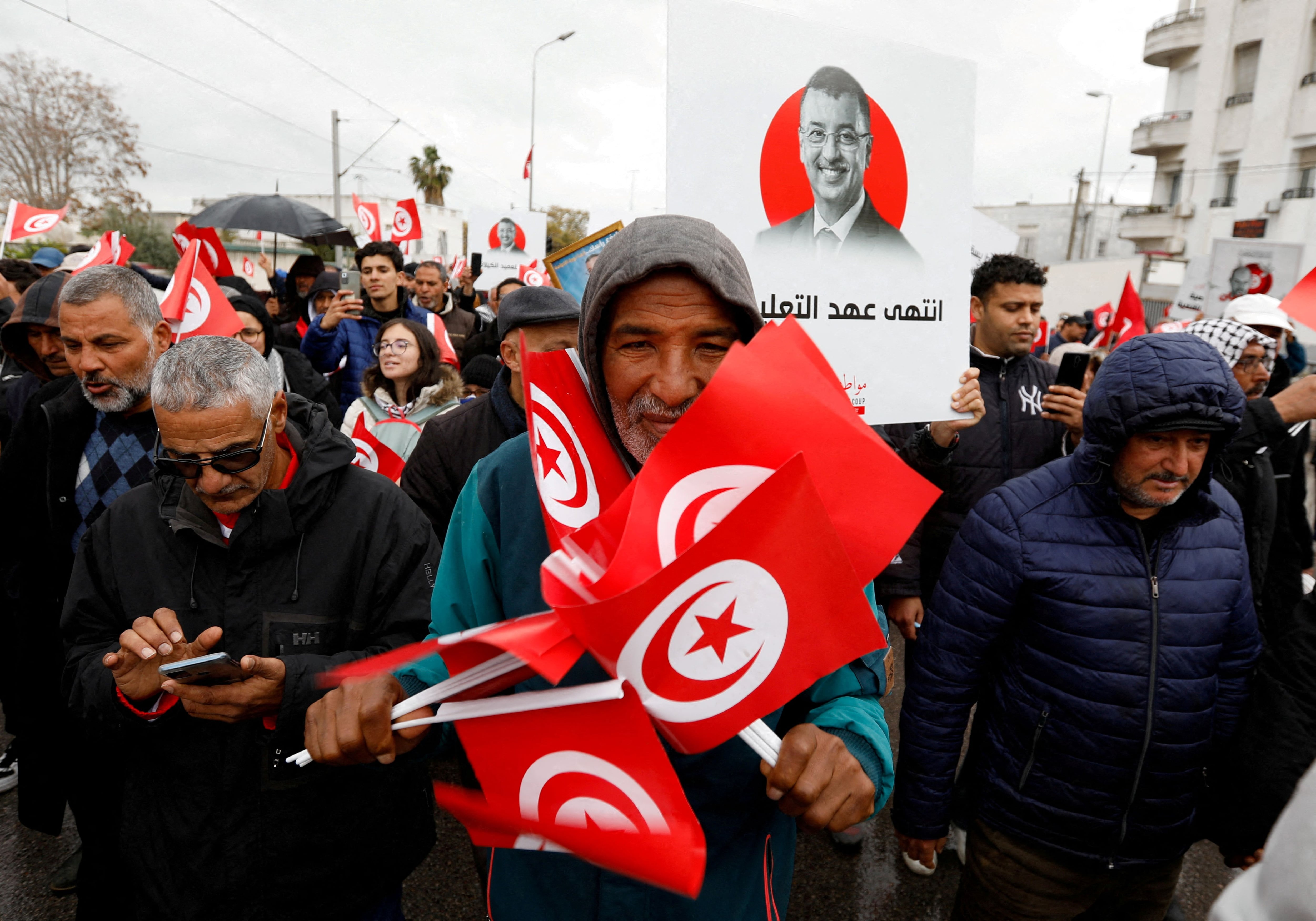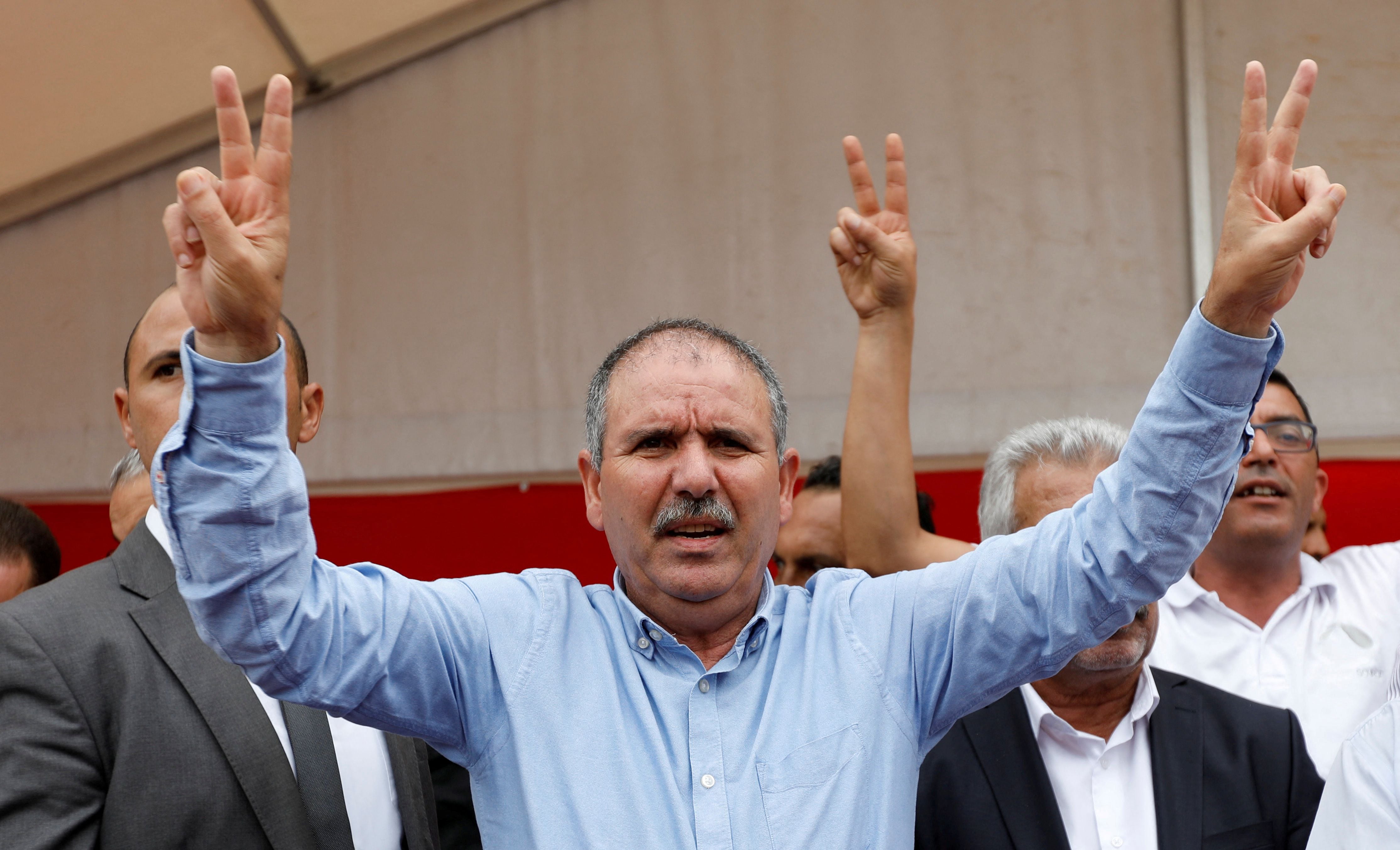
Tunisian President Kais Said announced on Wednesday the dissolution of Parliament, eight months after having “temporarily” suspended it to arrogate full powers in July 2021.
Said made this announcement at a meeting of the National Security Council, which he presides, hours after deputies organized a virtual session of Parliament, despite being suspended, in which they voted to annul the exceptional measures decided since then by the president.
In this instance, 116 of the 217 deputies participated, and that the Minister of Justice, Leïla Jaffel, described as a “conspiracy” against the security of the State, and therefore ordered the opening of an investigation against those involved.
Among the decrees adopted are the dismissal of Prime Minister Hichem Mechichi and the appointment of his successor, Nedjla Bouden; the suspension of almost all of the 2014 constitution and the dissolution of the Superior Council of the Judiciary (CSM) and its replacement by a “temporary” body.

“Those who try to attack the State or carry out internal fighting must face the institutions and powers that will divert them from their objectives,” the leader warned this Saturday after learning about the initiative of Parliament, which is planning a second session on April 2 to examine the political, economic and social situation.
“I announce today, at this historic moment, the dissolution of the Assembly of People's Representatives to preserve the State and its institution and preserve the Tunisian people,” Saied said in a video released by the presidency.
For its part, the powerful trade union central UGTT - which supports the president's exceptional measures - also rejected this meeting and accused the parliamentarians of “leading the country into conflict and political division”.

In a joint statement released this Saturday, a total of 27 deputies from different parliamentary groups urged the members of the hemicycle to assume their responsibilities and promote a national dialogue between the different national actors that would lead the country to early legislative and presidential elections.
After months of political blockade, Said, elected at the end of 2019, assumed full powers on July 25 after removing the prime minister and suspending the parliament dominated by the Islamist-inspired party Ennahdha.
With full powers, the president can legislate by decree, preside over the Council of Ministers and amend laws.
The deputies, including representatives of Ennahdha and the independents, called during the session to organize early legislative and presidential elections to overcome the political and socio-economic crisis.
According to the roadmap announced by Said at the end of the year, the country will have to hold a constitutional referendum on July 25 - the first in the history of the country - and legislative referendum anticipated on December 17.
(With information from AFP and EFE)
Keep reading:
Últimas Noticias
Debanhi Escobar: they secured the motel where she was found lifeless in a cistern
Members of the Specialized Prosecutor's Office in Nuevo León secured the Nueva Castilla Motel as part of the investigations into the case

The oldest person in the world died at the age of 119
Kane Tanaka lived in Japan. She was born six months earlier than George Orwell, the same year that the Wright brothers first flew, and Marie Curie became the first woman to win a Nobel Prize

Macabre find in CDMX: they left a body bagged and tied in a taxi
The body was left in the back seats of the car. It was covered with black bags and tied with industrial tape
The eagles of America will face Manchester City in a duel of legends. Here are the details
The top Mexican football champion will play a match with Pep Guardiola's squad in the Lone Star Cup

Why is it good to bring dogs out to know the world when they are puppies
A so-called protection against the spread of diseases threatens the integral development of dogs




